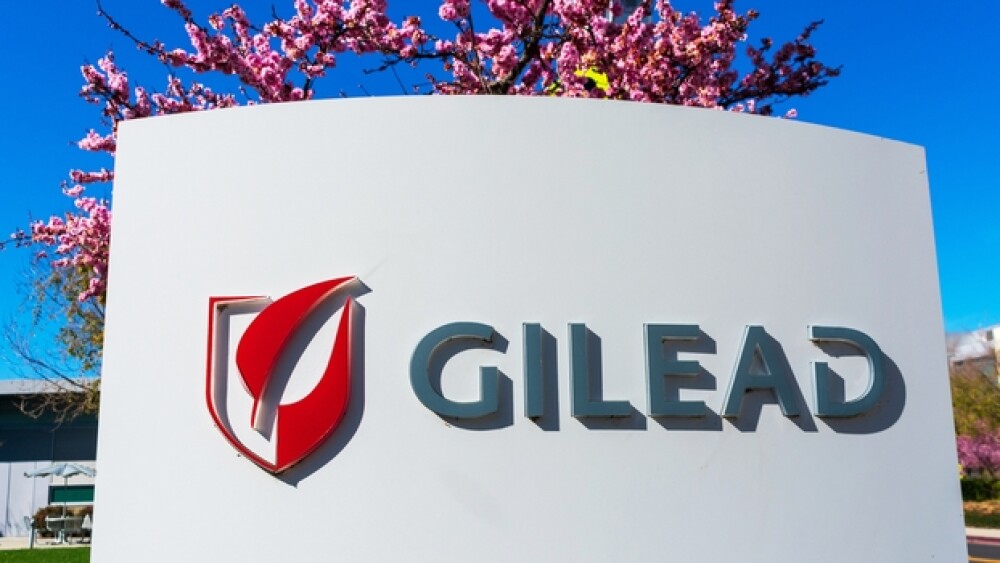Gilead Sciences has inked a collaboration, option and license deal with Gritstone Oncology to create a vaccine-based immunotherapy as a cure for HIV.
Michael Vi/Shutterstock
Gilead Sciences has inked a collaboration, option and license deal with Gritstone Oncology to create a vaccine-based immunotherapy as a cure for HIV. Cure is not a word used lightly by the biopharmaceutical industry, particularly in terms of HIV. The disease is effectively treated and controlled with cocktails of antiviral drugs, but actual cures have been elusive.
The partnership will leverage Gritstone’s proprietary prime-boost vaccine platform. This is made up of self-amplifying mRNA (SAM) and adenoviral vectors using antigens developed by Gilead.
Gilead is a viral expert, with a dominant place in the hepatitis and HIV arena, as well as having the only approved antiviral drug for COVID-19, remdesivir. Gritstone develops immunotherapies against multiple cancer types and infectious diseases. Gritstone has two key technology platforms. One is its proprietary machine learning platform, Gritstone EDGE, that predicts antigens presented on the surface of cells, such as cancer cells or cells infected by viruses. The second is Gritstone’s capabilities in developing and manufacturing potent immunotherapies using those antigens.
Under the terms of the deal, Gilead is paying Gritstone $30 million in cash up front and a $30 million equity investment. Gilead will handle a Phase I trial for the HIV-specific vaccine and will hold an exclusive option for an exclusive license to develop and commercialize it beyond Phase I. Gritstone will be up for an additional $725 million in regulatory and commercial milestones, as well as mid-single-digit to low double-digit tiered royalties on net sales.
“While HIV treatment has advanced dramatically over the past three decades, people living with HIV still face a lifetime of therapy,” said Diana Brainard, senior vice president, Virology Therapeutic Area, Gilead. “Curing HIV remains the ultimate aspiration for Gilead’s HIV research and development efforts.”
Brainard added, “Gritstone’s vaccine technology has the potential to educate the immune system to specifically recognize and destroy HIV-infected cells by leveraging SAM and adenoviral vectors. This, along with our other partnerships and internal programs, reflects Gilead’s commitment to continuing innovation to discover a cure for HIV and bring about an end to the HIV epidemic.”
There were not a lot of technical details related to the collaboration, but it appears Gritstone will utilize simian immunodeficiency virus (SIV)-derived antigens. These are similar to HIV-1.
“The resulting strong, durable and broad anti-SIV CD8+ T cell responses and T cell data captured the attention of Gilead’s virology team. We jointly performed further experiments that generated additional compelling data, which was also complemented by our exciting clinical data with neoantigens in cancer patients,” said Karin Jooss, Gritstone’s executive vice president of Research and chief scientific officer. “We are delighted to now advance our partnership and product candidates for the treatment of patients with HIV infection.”
On January 20, Gritstone entered into licensing deal with Genevant Sciences to Genevant’s lipid nanoparticle (LNP) technology to develop SAM vaccines against SARS-CoV-2, the virus that causes COVID-19. Genevant’s LNP platform is already clinically validated and part of Gritstone’s SAM neoantigen-based cancer immunotherapy that is currently in Phase II studies.
“We are pleased to extend our longstanding and productive collaboration with the Genevant team to include our newly launched COVID-19 program,” said Andrew Allen, co-founder, president and chief executive officer of Gritstone. “As we continue to see new strains of SARS-CoV-2 emerge, we identified an opportunity to apply our key strengths to an innovative COVID-19 vaccine. Specifically, extending the antigenic content of a COVID-19 vaccine beyond Spike alone may open up a route to clinical protection even if Spike mutations reduce antibody binding. We believe our approach could make an important impact on COVID-19 by eliciting robust neutralizing antibody responses and plentiful anti-viral CD8+ T cells to both Spike and other key viral antigens.”
This is of particular interest because of the rise of variant COVID-19 strains out of the UK, South Africa and Brazil, which appears to have mutations in the Spike protein that allows the virus to be more contagious than earlier strains and are less targeted by the existing vaccines and antibody therapies. At this time, the variants are not “slipping” the vaccines, meaning they are completely avoiding them, but the vaccines do appear to be less efficacious against the South African variant in particular.
Featured Jobs on BioSpace





